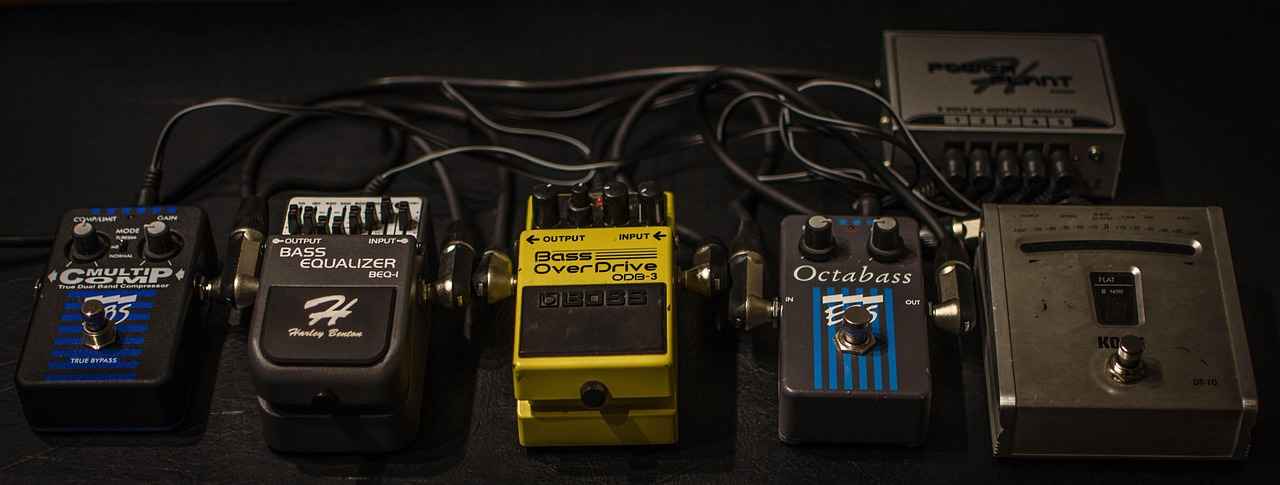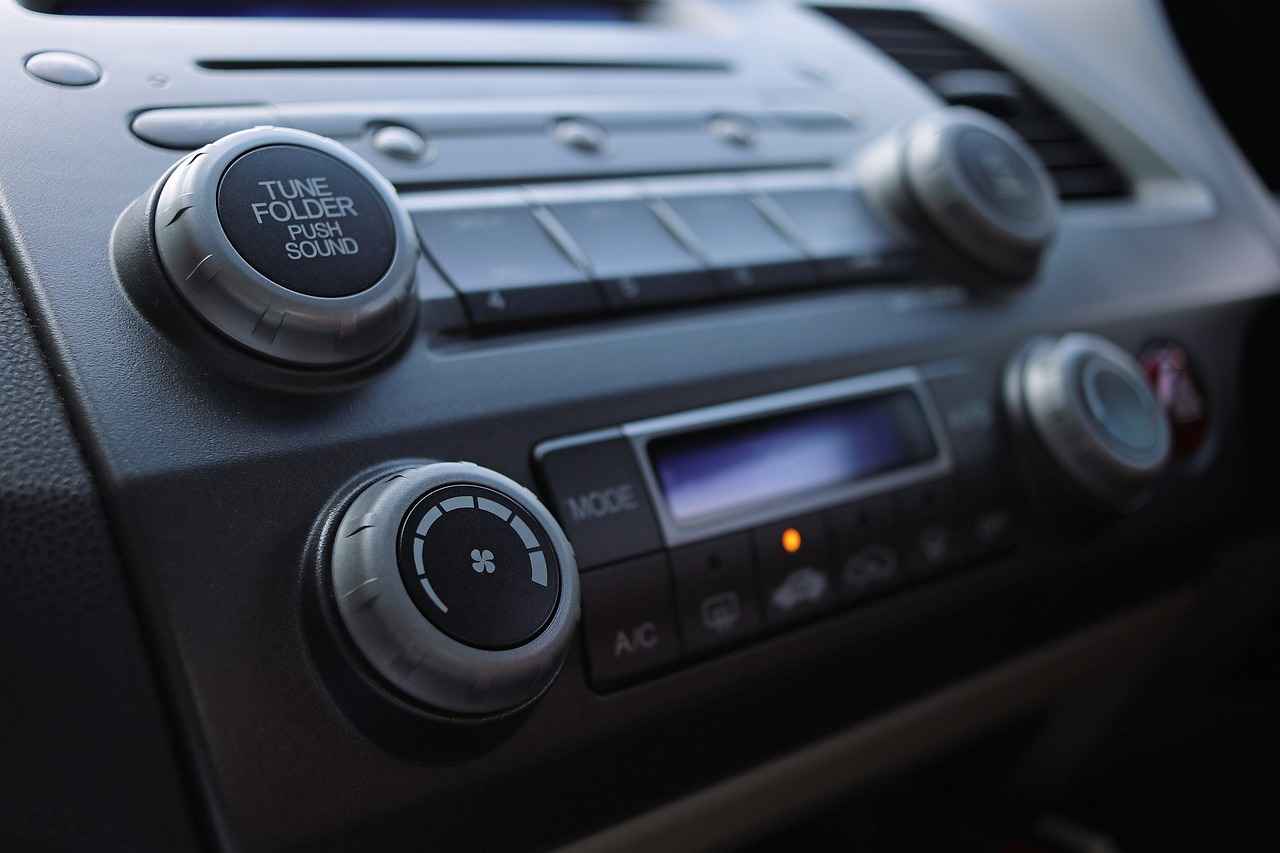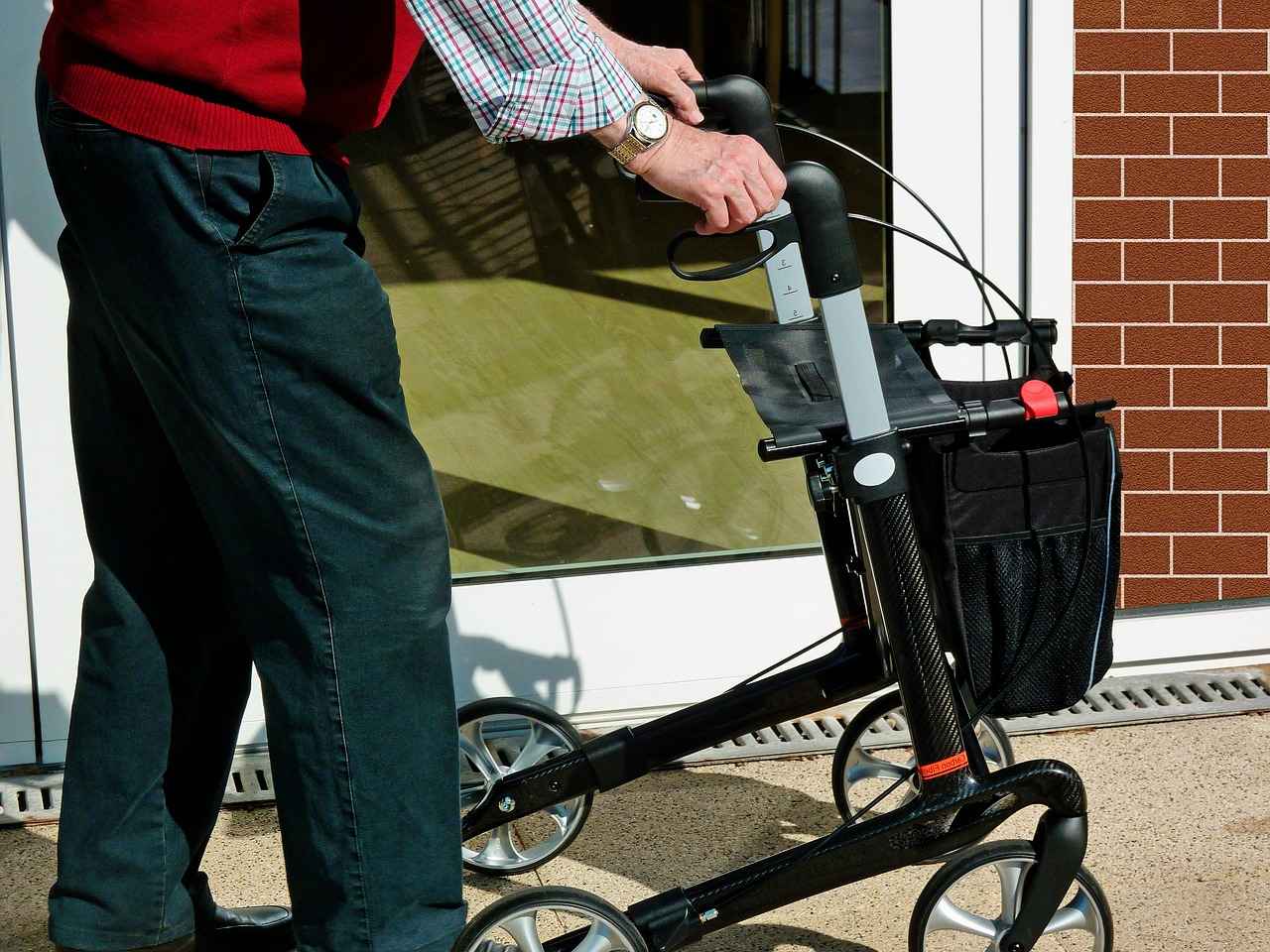This article explores the critical signs indicating a failing AC compressor, helping homeowners recognize issues early and avoid costly repairs or replacements. The AC compressor plays a crucial role in the cooling system of your home, and understanding its function can help in identifying potential problems before they escalate.
Understanding the Role of an AC Compressor
The AC compressor is essential for the cooling process, as it compresses the refrigerant and facilitates the heat exchange necessary for cooling your home. When the compressor fails, the entire system can be compromised, leading to uncomfortable indoor temperatures and increased energy costs.
Common Signs of a Failing AC Compressor
- Unusual Noises from the AC Unit: If your AC unit begins to emit strange sounds such as grinding, squealing, or rattling, this could indicate a problem with the compressor that needs immediate attention.
- Inconsistent Cooling Performance: If certain areas of your home are not cooling properly, this inconsistency could point to a malfunctioning compressor that is unable to circulate refrigerant effectively.
- Increased Energy Bills: A sudden spike in your energy bills may indicate that your AC compressor is working harder than usual due to inefficiency, often a sign of underlying issues that require attention.
- Physical Signs of Damage: Visual inspections can reveal physical signs of damage, such as leaks or rust, which may indicate that your AC compressor is in distress and needs professional evaluation.
- Temperature Fluctuations: If you notice significant temperature fluctuations in your home, it could be a sign that your AC compressor is struggling to maintain consistent cooling.
Types of Noises to Watch For
Different sounds can signify various issues. For instance, a hissing noise may indicate a refrigerant leak, while a clicking sound might suggest electrical problems. It’s important to pay attention to these noises and seek professional help if they persist.
When to Call a Professional
If you notice persistent unusual noises or any of the other signs mentioned, it’s best to consult a professional technician. Early diagnosis can prevent further damage and save you from costly repairs.
Understanding Energy Consumption Patterns
Monitoring your energy consumption can help identify when your AC unit is using more power than usual, potentially signaling a problem with the compressor. Keeping track of your energy bills regularly can provide insight into your system’s efficiency.
Identifying Refrigerant Leaks
Refrigerant leaks are a common issue that can severely impact your AC compressor’s performance. Identifying these leaks early can prevent further damage and costly repairs. Look for signs of moisture around the unit or a reduction in cooling efficiency.
Checking for Rust and Corrosion
Rust and corrosion on the compressor can indicate prolonged exposure to moisture, which can lead to compressor failure if not addressed promptly. Regular maintenance can help mitigate these issues.
Evaluating System Performance
Regularly assessing your system’s overall performance can help identify issues early. Ensure your thermostat settings are correct, as improper settings can also lead to temperature inconsistencies that may be mistaken for compressor issues.
In conclusion, being vigilant about the signs of a failing AC compressor can save homeowners from significant discomfort and financial strain. By recognizing these indicators and seeking timely professional assistance, you can ensure your cooling system operates efficiently and effectively.

Understanding the Role of an AC Compressor
The AC compressor plays a crucial role in the cooling system of your home, acting as the heart of your air conditioning unit. Understanding its function and importance can help you identify potential issues before they escalate into costly repairs. This article delves into the essential role of the AC compressor, its operation, and the signs of potential failure.
At its core, the AC compressor is responsible for compressing refrigerant and facilitating the heat exchange process that cools your indoor environment. The compressor takes in low-pressure refrigerant gas from the evaporator coil and compresses it into a high-pressure gas. This process increases the temperature of the refrigerant, which is then pushed to the condenser coil, where it releases heat and transforms back into a liquid state. This cycle is vital for maintaining a comfortable temperature in your home.
When the AC compressor is functioning correctly, it ensures that your air conditioning system operates efficiently. However, if the compressor begins to fail, it can lead to a host of problems. Recognizing the symptoms of a malfunctioning compressor is essential for homeowners. Here are some common indicators to watch for:
- Inconsistent Cooling: If certain rooms in your home are warmer than others, it may indicate that the compressor is struggling to circulate refrigerant effectively.
- Unusual Noises: Sounds like grinding or squealing can signal mechanical issues within the compressor that require immediate attention.
- Increased Energy Bills: A sudden spike in energy costs may suggest that your compressor is working harder than it should due to inefficiency.
- Visible Damage: Physical signs such as rust or refrigerant leaks can indicate that the compressor is in distress and may need professional evaluation.
Understanding these signs can help you take timely action. For example, if you notice unusual noises, it’s advisable to consult a professional technician to diagnose the issue. Ignoring these signs can lead to further damage and more expensive repairs down the line.
Moreover, regular maintenance of your AC system can prevent compressor failure. Keeping the condenser coils clean, ensuring proper refrigerant levels, and scheduling routine inspections can significantly enhance the lifespan of your AC compressor. Homeowners should also be vigilant about monitoring their energy consumption patterns. Tracking your energy bills and usage can help identify irregularities that may be linked to compressor issues.
In conclusion, the AC compressor is integral to your air conditioning system’s performance. By understanding its role and recognizing the signs of potential failure, you can ensure a more efficient and effective cooling experience in your home. Regular maintenance and prompt attention to issues can save you money and keep your home comfortable during the warm months.

Common Signs of a Failing AC Compressor
When it comes to ensuring a comfortable living environment, your air conditioning system plays a crucial role. Among its components, the AC compressor is vital for the cooling process. Recognizing the early warning signs of a failing compressor can save you from costly repairs and maintain the efficiency of your cooling system. Below are several key indicators that signal your AC compressor may be struggling.
- Unusual Noises: If your AC unit begins to emit strange sounds such as grinding, squealing, or hissing, it’s a clear indication that something is amiss. These noises often suggest mechanical failure or refrigerant leaks, both of which require immediate attention.
- Inconsistent Cooling: Have you noticed that some rooms in your home are warmer than others? This inconsistency in cooling could signal that your compressor is unable to circulate refrigerant effectively, leading to uneven temperatures.
- Increased Energy Bills: A sudden spike in your energy bills can indicate that your AC compressor is working harder than usual to cool your home. This inefficiency often results from underlying issues that need to be addressed promptly.
- Physical Damage: Conduct a visual inspection of your AC unit. Look for signs of rust, corrosion, or leaks. These physical indicators can suggest that your compressor is in distress and may require professional evaluation.
- Temperature Fluctuations: If you experience significant temperature variations indoors, it may be a sign that your compressor is struggling to maintain a consistent cooling output. This could warrant further investigation into the unit’s performance.
Different sounds can signify various issues with your AC compressor. For instance, a hissing noise often points to a refrigerant leak, while a clicking sound may indicate electrical problems. If these noises persist, it’s advisable to consult a professional technician who can diagnose the issue accurately.
Monitoring your energy consumption is essential. If your energy bills suddenly increase without a corresponding rise in usage, it could be a sign that your AC compressor is working inefficiently. Regularly comparing your energy usage across seasons can help pinpoint irregularities linked to a failing compressor.
Refrigerant leaks are a common issue that can severely impact your AC compressor’s performance. Early detection is crucial, as these leaks can lead to decreased efficiency and increased energy costs. If you suspect a leak, it’s best to contact a qualified technician to assess the situation.
Visual inspections can reveal critical signs of damage. Look for rust or corrosion on the compressor, which may indicate prolonged exposure to moisture. Addressing these issues promptly can prevent further damage and ensure the longevity of your AC system.
Regularly assessing your AC system’s overall performance is vital. If you notice any of the signs mentioned above, take action before the problem escalates. This proactive approach not only ensures your comfort but also extends the lifespan of your AC compressor.
Unusual Noises from the AC Unit
When it comes to maintaining a comfortable home environment, your air conditioning (AC) unit plays a crucial role. One of the most telling signs that your AC compressor may be malfunctioning is the presence of unusual noises. These sounds can range from subtle to alarming and often indicate that immediate attention is required to prevent further damage.
The AC compressor is responsible for circulating refrigerant throughout the system, and any irregularities in its operation can lead to distinct noises. Here are some common sounds to listen for:
- Grinding: This noise typically suggests that the internal components of the compressor are wearing down or that there is a lack of lubrication. If you hear grinding, it’s crucial to turn off your AC unit and call a professional.
- Squealing: A squealing sound often indicates that the compressor’s belt is worn or loose. This can lead to further complications if not addressed promptly.
- Hissing: A hissing noise may signal a refrigerant leak, which can severely affect the cooling efficiency of your AC unit. This issue requires immediate professional evaluation.
- Clicking: If your AC unit is making clicking sounds, it could indicate electrical issues or problems with the compressor’s motor. Ignoring this sound could result in a complete system failure.
Listening to your AC unit is essential for early detection of potential problems. Unusual noises are often a precursor to more significant issues that can lead to costly repairs or even a complete system replacement. Addressing these sounds as soon as they are noticed can save you time, money, and stress.
If you notice any of these unusual noises, it’s essential to take action quickly. Here are some guidelines on when to call a professional:
- If the noises persist after the unit has been running for a short period.
- If the sounds are accompanied by a noticeable decrease in cooling performance.
- If you observe any physical signs of damage, such as leaks or rust.
Professional technicians have the expertise to diagnose the underlying issues accurately and recommend appropriate solutions, ensuring your AC unit operates efficiently.
Regular maintenance can help prevent unusual noises and extend the lifespan of your AC compressor. Here are some tips:
- Schedule Regular Inspections: Have your AC unit serviced at least once a year to catch potential issues early.
- Change Filters Regularly: Dirty filters can cause strain on the compressor, leading to unusual noises and reduced efficiency.
- Keep the Area Around the Unit Clear: Ensure that there are no obstructions around your AC unit that could affect its operation.
By staying vigilant and addressing any unusual noises promptly, homeowners can ensure their AC units remain in optimal condition, providing reliable cooling throughout the hot months.
Types of Noises to Watch For
When it comes to your air conditioning system, being vigilant about the sounds it produces can save you from costly repairs. Different sounds can signify various issues within the system, and recognizing these noises is crucial for timely intervention. Here, we will explore some common types of noises you should be aware of, their potential causes, and what actions you should consider taking.
- Hissing Noises: A hissing sound often indicates a refrigerant leak. This occurs when the refrigerant escapes through small holes or cracks in the system. Not only does this reduce the efficiency of your AC unit, but it can also lead to serious environmental concerns. If you hear a hissing noise, it is essential to call a professional technician to locate and repair the leak.
- Clicking Sounds: If your AC unit is making a clicking sound, it could suggest electrical problems. This noise may indicate that the capacitor is failing or that there is an issue with the electrical connections. Ignoring this sound can lead to further damage, so it is advisable to have a qualified technician inspect the unit.
- Grinding Noises: A grinding noise is typically a sign of mechanical failure within the compressor. This could be due to worn-out bearings or other internal components. If you hear this sound, it is crucial to turn off the unit immediately and call for professional service to prevent complete compressor failure.
- Squealing Sounds: Squealing noises can indicate that the AC belt is worn out or that the motor bearings are failing. This sound should not be ignored, as it can lead to a breakdown of the system. Regular maintenance can help prevent such issues, but if you hear squealing, it is best to seek professional help.
- Banging or Thumping: If your AC unit is producing a banging or thumping noise, it may indicate loose parts or debris within the system. This could also mean that the compressor is failing. It’s important to address this immediately, as it can cause significant damage if left unattended.
In summary, being aware of the types of noises your AC unit produces is vital for maintaining its health and efficiency. Each sound can provide insights into potential issues that require immediate attention. If you notice any of these noises, do not hesitate to contact a professional to diagnose and resolve the problem before it escalates.
Regular maintenance and awareness can help ensure your air conditioning system operates smoothly, providing you with consistent cooling and comfort throughout the hot months.
When to Call a Professional
When it comes to maintaining your air conditioning system, understanding when to call a professional is crucial. Many homeowners may attempt to troubleshoot issues themselves, but certain signs indicate that professional intervention is necessary to prevent further damage and ensure the longevity of your unit.
Recognizing Persistent Unusual Noises
If you notice persistent unusual noises coming from your AC unit, it is essential to take these sounds seriously. Noises such as grinding, squealing, or clanking can signal underlying problems with the compressor or other components. Ignoring these warning signs can lead to more severe damage and costly repairs.
- Grinding Sounds: This may indicate that the internal components are wearing down or have become misaligned.
- Squealing Noises: Often a sign of a worn-out belt or a problem with the motor.
- Clanking Sounds: This could suggest loose or broken parts within the system.
Importance of Timely Diagnosis
Consulting a professional technician at the first sign of unusual noises is vital. They possess the expertise to diagnose the issue accurately and recommend appropriate solutions. By addressing problems early, you can avoid the risk of a complete system breakdown, which can be both inconvenient and expensive.
Assessing Performance Issues
In addition to unusual noises, if your AC unit is not performing as expected—such as inconsistent cooling or increased energy bills—it may be time to call in a professional. A technician can evaluate the system’s efficiency and identify any underlying issues that may be affecting its performance.
Visual Inspections for Physical Damage
Regular visual inspections can also help in identifying when to seek professional help. Look for signs of leaks, rust, or corrosion around the compressor. These physical indicators often point to a failing unit that requires immediate attention.
Conclusion
In summary, recognizing the signs that warrant professional assistance can save you time, money, and stress. If you experience persistent unusual noises, performance issues, or noticeable physical damage, do not hesitate to consult a qualified technician. Their expertise will ensure that your AC system is restored to optimal performance, keeping your home comfortable during the hot months.
Inconsistent Cooling Performance
When it comes to maintaining a comfortable home environment, your air conditioning system plays a crucial role. One of the most significant components of this system is the AC compressor. If you notice that certain areas of your home are not cooling properly, this inconsistency could indicate a malfunctioning compressor that is unable to circulate refrigerant effectively. Understanding the implications of inconsistent cooling performance can help you address issues before they escalate.
The AC compressor is responsible for compressing the refrigerant and facilitating the heat exchange process. When it fails, the entire cooling system can suffer, leading to uneven temperatures throughout your home. Here are some signs to look out for:
- Hot Spots: If some rooms remain warm while others are cool, it may indicate that the compressor is struggling to distribute refrigerant evenly.
- Increased Humidity: An inefficient compressor can lead to higher humidity levels, making your home feel uncomfortable even if the temperature seems acceptable.
- Frequent Cycling: If your AC unit turns on and off more frequently than usual, it may be a sign that the compressor is unable to maintain the desired temperature.
Addressing inconsistent cooling performance promptly is essential. Ignoring these signs can lead to more severe issues, including complete system failure. Homeowners should consider the following steps:
- Check the Air Filter: A clogged air filter can restrict airflow, leading to uneven cooling. Regularly replacing or cleaning your air filter can improve performance.
- Inspect Ductwork: Leaks or blockages in the ductwork can prevent cool air from reaching certain areas. A professional inspection can identify and resolve these issues.
- Monitor Thermostat Settings: Ensure that your thermostat is functioning correctly and is set to the desired temperature. Malfunctioning thermostats can misinterpret the temperature, leading to inconsistent cooling.
If you have taken these steps and still experience inconsistent cooling, it may be time to consult a professional HVAC technician. They can perform a thorough inspection and diagnose any underlying issues with your AC compressor.
In summary, recognizing the signs of inconsistent cooling performance is vital for maintaining an efficient and comfortable home. By paying attention to your AC system and addressing any issues promptly, you can avoid costly repairs and ensure your home remains a cool oasis during the hot months.

Increased Energy Bills
When you notice a sudden spike in your energy bills, it can be alarming. This increase often points to your AC compressor working overtime due to inefficiency, which may indicate underlying issues that require immediate attention. Understanding the reasons behind these rising costs can help you take proactive measures to maintain your air conditioning system.
Several factors can contribute to higher energy bills, but if your AC compressor is the culprit, it usually means that the system is struggling to perform its job efficiently. Here are some reasons why this might happen:
- Age of the Unit: Older AC units often become less efficient over time, leading to increased energy consumption.
- Dirty Filters: Clogged filters obstruct airflow, forcing the compressor to work harder to cool your home.
- Refrigerant Issues: Low refrigerant levels can cause the compressor to run longer than necessary, resulting in higher energy usage.
- Electrical Problems: Faulty wiring or electrical components can lead to inefficiencies in the AC system.
In addition to increased energy bills, there are other signs that your AC compressor may be struggling:
- Frequent Cycling: If your AC unit turns on and off more frequently than usual, it could indicate that the compressor is having difficulty maintaining temperature.
- Inconsistent Cooling: Hot spots in your home may suggest that the compressor is unable to effectively circulate cool air.
- Unusual Noises: Grinding or squealing noises can signal mechanical issues within the compressor.
Keeping track of your energy consumption can help you identify patterns that might indicate a problem with your AC compressor. Here are some tips:
- Review Past Bills: Compare your current energy bills with previous months or the same time last year to spot unusual spikes.
- Use Energy Monitoring Tools: Consider investing in smart meters or energy monitors that provide real-time data on your energy usage.
If you notice a significant increase in your energy bills alongside other symptoms, it’s essential to consult a professional HVAC technician. They can perform a thorough inspection of your system, identify any inefficiencies, and recommend necessary repairs or replacements. Ignoring these signs can lead to larger issues down the road, including complete system failure.
In conclusion, paying attention to your energy bills and recognizing the signs of a struggling AC compressor can save you from costly repairs and ensure your home remains comfortable. Regular maintenance and timely interventions are crucial for keeping your air conditioning system running efficiently.
Understanding Energy Consumption Patterns
Monitoring your energy consumption is a crucial step in maintaining the efficiency of your air conditioning (AC) system. By keeping an eye on your energy usage, you can identify patterns that may indicate when your AC unit is consuming more power than usual. This increase in energy consumption can be a significant red flag, often signaling a potential problem with the compressor or other components of the system.
Why Monitor Energy Consumption? Regularly tracking your energy consumption allows you to establish a baseline for what is considered normal for your household. This baseline can help you spot any sudden spikes in energy use. If your energy bills suddenly increase without a corresponding change in usage patterns, it may indicate that your AC compressor is working harder than it should be, possibly due to inefficiencies or mechanical failures.
- Identify Abnormal Patterns: If you notice that your energy bills are significantly higher during the cooling season compared to previous years, it may be time to investigate further. A malfunctioning compressor can lead to increased energy consumption as it struggles to maintain the desired temperature.
- Understand Seasonal Variations: Comparing your energy usage across different seasons can also provide insights. For example, if your summer energy consumption is consistently higher than in previous years, it might indicate that your AC unit is not operating efficiently, potentially due to compressor issues.
- Monitor for Sudden Changes: Sudden increases in energy consumption can be a sign of underlying problems. If your AC unit starts consuming significantly more energy without any changes in usage habits, it may be time to call in a professional for an inspection.
Using Smart Technology for Monitoring With advancements in technology, many homeowners now have access to smart thermostats and energy monitoring systems that can provide real-time data on energy consumption. These tools can alert you to unusual patterns, making it easier to identify potential issues before they escalate. For instance, if your smart thermostat indicates that your AC is running longer than usual, this could suggest a problem with the compressor that needs immediate attention.
Impact of a Faulty Compressor on Energy Consumption A faulty compressor can lead to various issues, including poor cooling performance and increased energy bills. When the compressor struggles to circulate refrigerant effectively, it forces the system to work harder, resulting in higher energy consumption. This inefficiency not only raises your energy bills but can also lead to more significant problems, such as complete system failure if not addressed promptly.
In summary, monitoring your energy consumption is an essential practice for any homeowner with an AC unit. By being vigilant about your energy usage and recognizing the signs of increased consumption, you can identify potential issues with your compressor early on. This proactive approach can save you from costly repairs or replacements in the future, ensuring that your home remains cool and comfortable throughout the summer months.
Comparing Seasonal Energy Usage
Understanding your air conditioning system’s energy usage is crucial for maintaining its efficiency and longevity. One effective way to assess the performance of your AC compressor is by . This practice can reveal significant insights into your system’s functionality and help identify potential issues before they escalate.
Every season presents different demands on your air conditioning system. For instance, during the summer months, your compressor works harder to cool your home, while in spring and fall, the workload may decrease significantly. By tracking energy consumption across these different seasons, you can establish a baseline for how your system should perform under varying conditions.
When comparing energy bills from one season to another, look for irregularities that stand out. A noticeable increase in energy consumption during a season that typically requires less cooling could indicate a problem with your AC compressor. This might be caused by:
- Decreased efficiency due to wear and tear
- Refrigerant leaks that force the compressor to work harder
- Electrical issues that may cause the compressor to draw more power
To effectively compare your seasonal energy usage, consider the following steps:
- Keep Detailed Records: Maintain a log of your monthly energy bills, noting the average temperature for each month.
- Use Smart Meters: Invest in smart meters that can provide real-time data on your energy consumption.
- Analyze Trends: Look for patterns in your energy usage over the years to identify any significant changes.
If your analysis reveals unexpected spikes in energy usage, it’s crucial to take action:
- Schedule a Professional Inspection: A qualified technician can assess your compressor and identify any underlying issues.
- Consider Regular Maintenance: Regular servicing can help keep your compressor running efficiently and prevent future problems.
- Evaluate System Age: If your system is older, it may be time to consider an upgrade for better efficiency.
By actively monitoring your energy consumption, you not only save money but also contribute to a more sustainable environment. Understanding your AC’s performance enables you to make informed decisions about maintenance and repairs, ensuring a comfortable living space throughout the year.
In conclusion, comparing seasonal energy usage is a proactive approach to maintaining your AC system. By identifying irregularities early, you can address potential compressor issues before they lead to costly repairs or replacements. Regular monitoring and maintenance will enhance the efficiency and reliability of your air conditioning system, providing you with peace of mind.

Physical Signs of Damage
When it comes to maintaining your air conditioning system, visual inspections play a crucial role in identifying potential issues before they escalate. One of the most significant components of your AC system is the compressor, and observing its physical condition can provide valuable insights into its performance. By recognizing the signs of damage, such as leaks or rust, you can take proactive measures to ensure your system operates efficiently.
Identifying Leaks
One of the most concerning signs of a failing AC compressor is the presence of refrigerant leaks. These leaks can occur due to wear and tear or damage to the compressor unit. During a visual inspection, look for any signs of moisture or oily residue around the compressor area. If you notice any of these indicators, it’s essential to address them promptly, as refrigerant leaks not only compromise the cooling efficiency but can also lead to more severe damage to the compressor over time.
Rust and Corrosion
Another physical sign to watch for is rust and corrosion on the compressor’s exterior. This can be indicative of prolonged exposure to moisture, which can significantly affect the compressor’s functionality. If you see any rust spots or corrosion buildup, it may be time to consult a professional. Ignoring these signs can lead to complete compressor failure, resulting in costly repairs or replacements.
Unusual Vibrations
During your inspection, pay attention to any unusual vibrations coming from the compressor. If the unit is shaking or making excessive noise, it could signify internal damage. Such vibrations may indicate that components within the compressor are misaligned or damaged, which can lead to further complications if not addressed. A professional technician can help diagnose the issue and recommend the best course of action.
Checking Electrical Connections
In addition to physical signs, it’s important to inspect the electrical connections of the compressor. Loose or frayed wires can cause the compressor to operate inefficiently or not at all. Ensure that all connections are secure and show no signs of wear. If you encounter any electrical issues, it’s advisable to contact a qualified technician to prevent potential hazards.
Regular Maintenance
Conducting regular visual inspections of your AC compressor is essential for early detection of potential issues. By making it a habit to check for leaks, rust, vibrations, and electrical connection integrity, you can help extend the life of your AC system. Additionally, implementing a routine maintenance schedule with a professional technician can ensure that your compressor remains in optimal condition.
Conclusion
In summary, being vigilant about the physical signs of damage to your AC compressor can save you from costly repairs down the line. By recognizing issues like leaks, rust, and unusual vibrations early, you can take the necessary steps to maintain your air conditioning system’s efficiency and longevity. Always consult a professional if you notice any concerning signs, as they can provide expert insights and solutions tailored to your specific situation.
Identifying Refrigerant Leaks
When it comes to maintaining the efficiency of your air conditioning system, is crucial. These leaks not only compromise the performance of your AC compressor but can also lead to more significant issues if left unchecked. Understanding how to detect these leaks early can save homeowners from expensive repairs and ensure a comfortable indoor environment.
The refrigerant is the lifeblood of your air conditioning system, responsible for absorbing heat from your home and releasing it outside. When refrigerant levels drop due to leaks, the cooling efficiency of your system diminishes, leading to inadequate cooling and higher energy costs. Recognizing the signs of a refrigerant leak is therefore essential for effective AC maintenance.
- Unusual Hissing or Bubbling Sounds: If you hear a hissing or bubbling noise coming from your AC unit, it could indicate that refrigerant is escaping from a leak.
- Ice Formation on the Coils: A drop in refrigerant levels can cause the evaporator coils to freeze, leading to ice buildup. If you notice ice on your AC unit, it may be a sign of a refrigerant leak.
- Increased Energy Bills: As the system works harder to maintain the desired temperature due to reduced refrigerant levels, you may see a spike in your energy bills.
To effectively check for refrigerant leaks, consider the following steps:
- Visual Inspection: Look for signs of oil residue around the AC unit. Oil often accompanies refrigerant leaks.
- Use of Soap Solution: Mix soap and water in a spray bottle and apply it to suspected areas. If bubbles form, you likely have a leak.
- Professional Leak Detection: For a thorough evaluation, hiring a certified HVAC technician is advisable. They can use specialized tools to detect and repair leaks.
To minimize the risk of refrigerant leaks, regular maintenance is key. Here are some preventive measures:
- Regular Inspections: Schedule annual inspections with a qualified technician to check for potential issues before they escalate.
- Keep the Area Clean: Ensure that the area around your AC unit is clear of debris and vegetation, which can cause physical damage to the system.
- Monitor System Performance: Stay attuned to any changes in your AC’s performance, such as inconsistent cooling or strange noises, and address them promptly.
Ignoring refrigerant leaks can lead to severe consequences. Not only does it affect your AC compressor’s performance, but it can also lead to environmental harm. Refrigerants are known to contribute to ozone depletion, making it imperative to address leaks quickly. Furthermore, prolonged exposure to low refrigerant levels can cause irreparable damage to your AC system, leading to costly replacements.
In conclusion, being proactive about identifying and addressing refrigerant leaks is essential for maintaining your air conditioning system’s efficiency and longevity. Regular maintenance, awareness of the signs, and prompt action can help you avoid significant issues down the line.
Checking for Rust and Corrosion
When it comes to maintaining your air conditioning system, rust and corrosion on the compressor are significant indicators of potential problems. These issues often arise from prolonged exposure to moisture, which can lead to serious compressor failure if not addressed promptly. Understanding the implications of rust and corrosion is crucial for homeowners who want to prolong the lifespan of their AC units.
The compressor serves as the heart of your air conditioning system, responsible for circulating refrigerant and facilitating the heat exchange process. When moisture infiltrates the compressor, it can lead to rust formation, compromising the unit’s integrity and efficiency. This moisture can come from various sources, including high humidity levels, condensation, or even leaks in the system.
Why Rust and Corrosion Matter
- Compromised Performance: Rust can hinder the compressor’s ability to function effectively, resulting in decreased cooling performance.
- Increased Energy Consumption: A compromised compressor may work harder than necessary, leading to higher energy bills.
- Potential for Complete Failure: If left unchecked, rust and corrosion can lead to catastrophic compressor failure, necessitating costly repairs or replacements.
To effectively monitor the condition of your AC compressor, regular visual inspections are essential. Look for any signs of rust or corrosion on the exterior of the unit. If you notice any discoloration or flaking, it may be time to consult a professional technician. Additionally, checking for moisture accumulation around the compressor can help identify potential issues before they escalate.
Preventive Measures to Avoid Rust and Corrosion
- Regular Maintenance: Schedule routine maintenance checks with a certified HVAC technician to ensure your system is functioning optimally.
- Moisture Control: Consider using a dehumidifier in areas where your AC unit is located to minimize moisture levels.
- Protective Coatings: Applying protective coatings to the compressor can help prevent rust and corrosion from forming.
In conclusion, being proactive about rust and corrosion on your AC compressor can save you significant time and money in the long run. By understanding the risks associated with these issues and implementing preventive measures, you can ensure your air conditioning system operates efficiently and effectively. If you suspect your compressor is showing signs of rust or corrosion, don’t hesitate to contact a professional for a thorough evaluation and necessary repairs.

Monitoring Temperature Fluctuations
When it comes to maintaining a comfortable living environment, one of the most critical aspects is the efficiency of your air conditioning system. within your home can provide valuable insights into the health of your AC compressor. If you find that certain rooms are warmer or cooler than others, or if the temperature varies significantly throughout the day, it may indicate an underlying issue that requires immediate attention.
The AC compressor plays a crucial role in the cooling process. It compresses the refrigerant and circulates it through the system, allowing for effective heat exchange. If the compressor is struggling to perform its duties, you may notice that your home does not maintain a consistent temperature. This inconsistency can manifest as hot spots in some rooms or an overall feeling of discomfort.
To accurately assess temperature fluctuations, consider using a digital thermometer in various rooms. This will help you identify specific areas that are not cooling properly. If the readings show a significant difference, it may be a sign that your AC compressor is unable to circulate refrigerant effectively, leading to uneven cooling.
Before jumping to conclusions, it’s essential to check your thermostat settings. Ensure that your thermostat is set to the desired temperature and that it is functioning correctly. Sometimes, incorrect settings or a malfunctioning thermostat can lead to perceived temperature fluctuations, which may be mistaken for compressor issues.
Regular maintenance is key to ensuring your AC system operates efficiently. Schedule routine check-ups with a qualified technician to evaluate your system’s performance. During these evaluations, technicians can identify any potential problems with the compressor or other components, helping to prevent future issues.
If you notice significant temperature fluctuations, it’s important to look for other signs that your AC compressor may be failing. These can include:
- Unusual Noises: Listen for grinding, squealing, or clicking sounds coming from your AC unit.
- Increased Energy Bills: A sudden rise in your energy bills can indicate that your compressor is working harder than it should.
- Physical Damage: Check for visible signs of damage, such as rust or refrigerant leaks.
If you’ve ruled out thermostat issues and are still experiencing temperature fluctuations, it’s time to consult a professional. An HVAC technician can perform a thorough inspection to diagnose the problem accurately. They will have the expertise to determine whether the compressor needs repair or replacement.
In conclusion, monitoring temperature fluctuations in your home is essential for maintaining a comfortable environment. By understanding the role of the AC compressor and recognizing the signs of potential failure, you can take proactive steps to ensure your cooling system operates efficiently. Don’t hesitate to reach out to a professional if you suspect any issues; early intervention can save you from costly repairs and discomfort during the hot months.
Understanding Thermostat Settings
In maintaining a comfortable living environment, thermostat settings play a crucial role in ensuring your air conditioning system operates efficiently. Many homeowners overlook the significance of properly adjusted thermostat settings, which can lead to temperature inconsistencies that may be misinterpreted as issues with the AC compressor. Understanding how to set and adjust your thermostat can save you from unnecessary repairs and improve your system’s performance.
When your thermostat settings are incorrect, it can cause your AC unit to work harder than necessary. This strain can mimic symptoms of compressor failure, leading to confusion and potentially costly repairs. For instance, if your thermostat is set too high, the compressor may struggle to maintain the desired temperature, resulting in uneven cooling throughout your home.
- Incorrect Temperature Settings: Setting the thermostat too low can cause the AC to run continuously, risking premature wear on the compressor.
- Inconsistent Adjustments: Frequently changing the thermostat settings can lead to fluctuations in temperature, which may confuse the system and affect performance.
- Placement Issues: If your thermostat is located near heat sources, such as windows or appliances, it may not accurately reflect the room’s temperature, leading to improper cooling.
To ensure your AC system operates efficiently, follow these tips for optimizing your thermostat settings:
- Set a Consistent Temperature: Aim for a steady temperature that balances comfort and efficiency, typically between 75°F and 78°F during the summer months.
- Use Programmable Thermostats: Consider installing a programmable thermostat that allows you to set specific cooling schedules, reducing energy consumption when you’re not home.
- Regularly Check and Calibrate: Periodically assess your thermostat’s accuracy and recalibrate it if necessary to ensure it reflects the actual temperature of your home.
In addition to monitoring your thermostat settings, be aware of signs that may indicate issues with the thermostat itself:
- Inconsistent Temperature Readings: If you notice that the temperature in your home does not match what the thermostat displays, it may be time for a replacement.
- System Cycling On and Off: Frequent cycling can indicate that the thermostat is malfunctioning, which can lead to compressor strain.
In summary, ensuring that your thermostat settings are correct is essential for maintaining a comfortable and efficient home environment. By understanding the importance of proper settings, avoiding common mistakes, and recognizing signs of potential issues, you can help your AC compressor function optimally and extend its lifespan. Regular maintenance and attention to your thermostat can prevent unnecessary repairs and ensure your home remains cool and comfortable throughout the hot months.
Evaluating System Performance
When it comes to maintaining your air conditioning system, is crucial for ensuring that your AC compressor operates at its best throughout the cooling season. Regular assessments can help you identify potential issues early, preventing minor problems from escalating into costly repairs.
The first step in evaluating your system’s performance is to monitor the cooling efficiency. If you notice that certain rooms in your home are warmer than others, it could indicate that your AC compressor is struggling to circulate refrigerant effectively. This inconsistency in cooling may be a sign that the compressor is malfunctioning or that there are other underlying issues in the system.
Additionally, keep an eye on your energy bills. A sudden increase in energy expenses can be a clear indicator that your AC compressor is working harder than it should. This increased workload often points to inefficiencies within the system, such as refrigerant leaks or mechanical issues that require immediate attention.
Another important aspect to evaluate is the sound of your AC unit. Unusual noises, such as grinding or hissing, can signify a failing compressor. These sounds should not be ignored, as they may indicate serious problems that could lead to a complete breakdown of your AC system. If you hear any strange noises, it’s advisable to consult a professional technician for a thorough diagnosis.
Physical inspections are also a vital part of performance evaluation. Look for signs of leaks or corrosion around your AC unit. Rust and other forms of deterioration can severely impact the compressor’s functionality. If you spot any leaks, especially refrigerant leaks, it’s essential to address them promptly to avoid further damage and ensure efficient cooling.
Another effective method for evaluating system performance is to check the thermostat settings. Make sure that your thermostat is functioning correctly and set to the desired temperature. Incorrect settings can lead to temperature fluctuations, which may be mistaken for compressor issues. Regularly calibrating your thermostat ensures that it accurately reflects the temperature in your home.
Lastly, consider conducting a seasonal performance review. At the beginning of each cooling season, take the time to assess your system’s overall functionality. This includes checking the air filters, cleaning the condenser coils, and ensuring that the ductwork is free of obstructions. A well-maintained system not only enhances the lifespan of your AC compressor but also improves its efficiency, leading to lower energy bills and a more comfortable living environment.
In summary, regularly assessing your air conditioning system’s overall performance is vital for maintaining optimal function. By monitoring cooling efficiency, energy consumption, and conducting physical inspections, you can identify potential issues early. This proactive approach ensures that your AC compressor operates efficiently throughout the cooling season, ultimately saving you time and money on repairs.
Frequently Asked Questions
- How do I know if my AC compressor is failing?
Watch for signs like unusual noises, inconsistent cooling, or increased energy bills. If your AC is making grinding or squealing sounds, or if certain areas of your home aren’t cooling properly, these could be red flags that your compressor needs attention.
- What types of noises should I be concerned about?
Different sounds can indicate various issues. For example, a hissing noise might signal a refrigerant leak, while clicking sounds could suggest electrical problems. If these noises persist, it’s time to call a professional.
- Can I check for physical signs of damage myself?
Absolutely! Look for leaks or rust on the compressor. These signs can indicate that your unit is in distress. Early detection can save you from costly repairs down the line.
- What should I do if I notice temperature fluctuations?
First, check your thermostat settings to ensure they’re correct. If everything seems fine there, it might be time to evaluate your system’s performance, as significant fluctuations could point to a struggling compressor.
- When is it necessary to call a professional?
If you notice any persistent issues like unusual noises, inconsistent cooling, or physical damage, it’s best to consult a technician. They can diagnose the problem accurately and help you avoid further damage.




